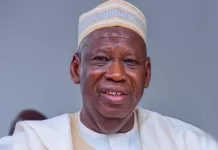It is an open secret that not many girl-child in the Northern part of Nigeria have the opportunity to get educated.
The need to correct this lopsidedness is why the World Bank began Adolescent Girls Initiative for Learning and Empowerment (AGILE).
In an effort to widen the reach of the initiative, the World recently committed additional funds to the programme.

“Education they say is the key to development.”
In Africa, the girl-child is often denied education, either because of her gender or because she gets married and ends up in the kitchen, as some believe.
Have You Read: World Bank – Nigeria’s Remittance Flow Hits $20.1bn
World Bank’s $700m To Fund Girl-Child Education
These errors are why the World Bank, has committed a fresh $700 million to it’s Adolescent Girls Initiative for Learning and Empowerment (AGILE) programme in Nigeria.
The goal is to improve secondary education opportunities among girls in targeted states.
According to the bank, the plan for the fund is to scale project activities from the current seven states to 11 additional states.
Also, the targeted beneficiaries will include out-of-school girls, those who are married, and those who have disabilities.
The World Bank Country Director for Nigeria, Shubham Chaudhuri, revealed that Nigeria had over 15 million out-of-school children in the school- age group.
Chaudhuri said, majority of them were concentrated in northern Nigeria, where secondary school completion rates among girls are low.
He noted that there were high levels of violence around schools.
About one million children affected by increased insecurity in 2020-2021, may not return to school.
Also, girls being are at risk of gender-based violence.
An array of issues, including poverty and negative cultural practices stand as barriers to education for girls.
States Where AGILE Is Operational
In the seven AGILE programme implementing states are Borno, Ekiti, Kaduna, Kano, Katsina, Kebbi and Plateau.
The number of girls in secondary schools has increased from about 900,000 to over 1.6 million in these states.
Furthermore, over 5,000 classrooms have been renovated and over 250,000 eligible girls have received scholarships, under this programme.
According to the statistics AGILE, has constructed and rehabilitated WASH facilities in secondary schools.
Also, computers and solar panels, which make attending school more convenient and conducive, have been installed.
Life skills, systems strengthening and advocacy are other key aspects of the programme which address social norms impeding girls’ education.
Let’s Close The Gender Gap
“Closing the gender gap in economic empowerment by ensuring girls have access to education and skills is key.”
Explaining the role AGILE, The Task Team Lead on AGILE, Aisha Garba, said, “Nigeria’s working population will soon be one of the youngest and largest around the world.
“This means that investing in adolescent girls is imperative when addressing overall economic prospects and growth.”
“A larger number of vulnerable girls will be reached in the earmarked 18 states.
“We will provide digital skills, a more conducive learning environment and life skills, for the over 8.6 million girls to complete their secondary education.”
You May Also Like: Minimise Borrowing From CBN, World Bank Advice FG
Selected States Will Get Educational Benefits
“States will get community secondary schools, more female teachers, use energy efficient measures, and be more inclusive of girls living with disabilities.”
In addition, teachers, administrators, families, communities, and staff in existing and newly constructed schools will benefit.




